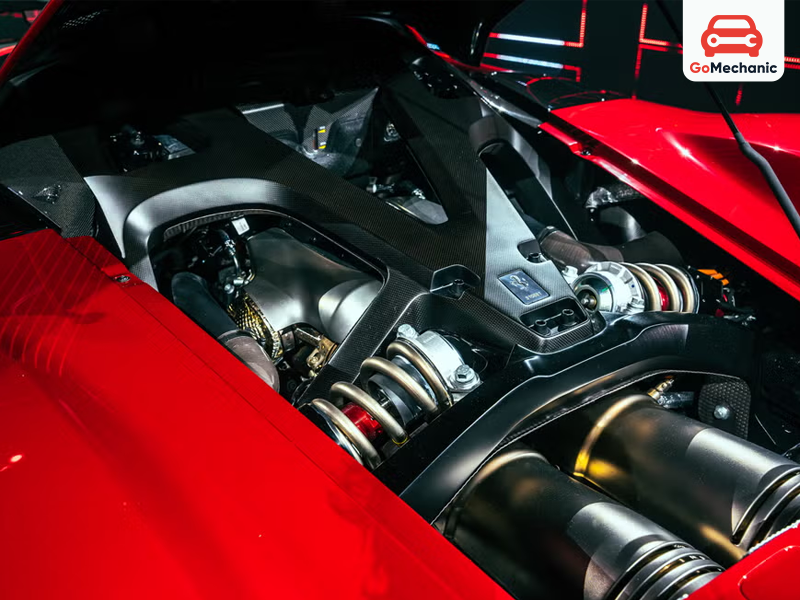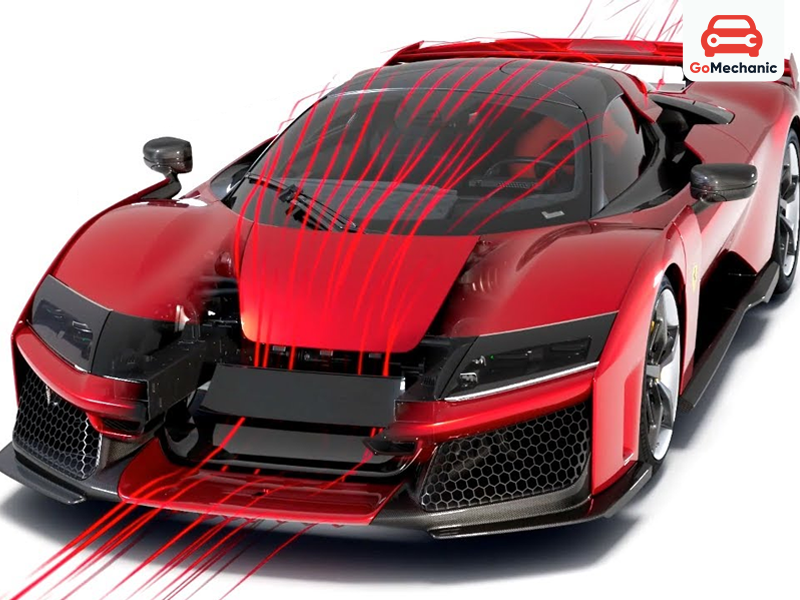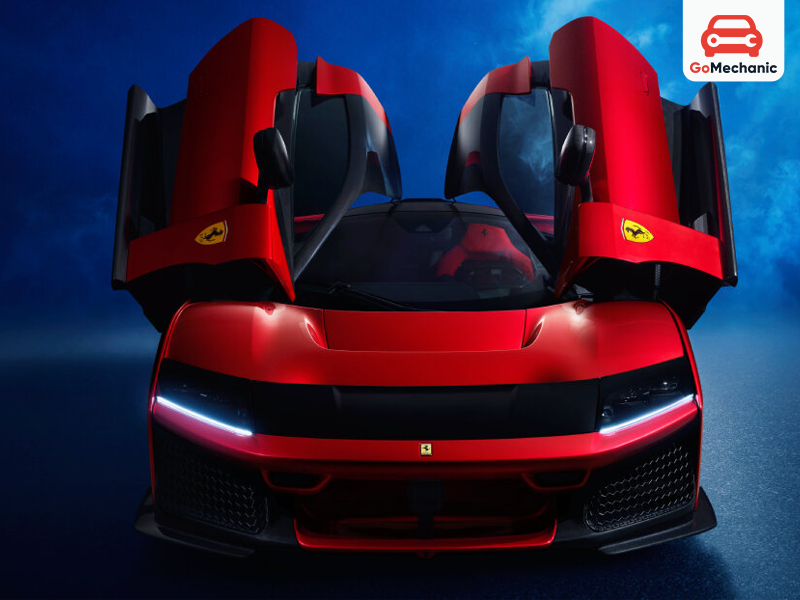Boasting a 1200 hp hybrid V6 powertrain, the F80 is the most powerful road car Ferrari ever made.
Ferrari has unveiled its latest hypercar, the F80, marking the successor to the LaFerrari. The F80 combines cutting-edge technology from the Italian make’s Le Mans-winning 499P and Formula 1 cars.
Limited to just 799 units and priced at GBP 3 million (around ₹33 crore), the F80 has already sold out, despite being revealed just weeks after the McLaren W1.
- F80 powered by 900hp V6 and three electric motors
- Claimed 0-100kph in 2.15 seconds, faster than McLaren W1
- Aerodynamics generate up to 1,000kg of downforce at 250kph
Ferrari F80 Powertrain and Modes
The F80 features Ferrari’s revamped 3.0-litre twin-turbo V6, capable of revving to 9,200rpm. The engine has been thoroughly upgraded, drawing inspiration from the 499P Le Mans car, to produce 900hp—the most powerful engine Maranello ever made.

This power is combined with three in-house-developed electric motors—two on the front axle and one at the rear to deliver a combined 1,200hp. The motors at the front make 142hp each, while the rear motor functions as an energy recovery unit similar to the MGU-K used in Ferrari’s F1 cars, adding 95hp during braking. Further, it is the first Ferrari featuring ‘e-turbos’, which uses F1-derived tech to reduce lag and enhance throttle response.
The F80 achieves claimed 0-100kph in 2.15 seconds and 0-200kph in 5.75 seconds, outpacing rivals like the McLaren W1 and Mercedes-AMG One.
With selectable driving modes (Hybrid, Performance, and Qualify)via a switch on the steering wheel, the F80 provides a Boost Optimisation function but doesn’t offer a pure-electric mode. Its 2.3kWh battery boosts power and runs the car for short durations in low-speed settings.
Must Read: BMW M4 CS India launch at ₹ 1.89 crore
Ferrari F80 Aerodynamics
The F80’s aero package borrows heavily from Ferrari’s F1 designs featuring an aggressive front nose, large barge boards as air channels, a massive ‘S-duct’(form 499P), and a black fascia across the nose( similar to that of the new 12Cilindri) with a small lip at the top edge to channel air over the top of the cabin to the rear wing.

The active rear wing adjusts its height and angle for optimal downforce. The car generates up to 1,000kg of downforce at 250km/hr, rivalling the McLaren W1 and just short of an F1 with 1200kg at the same speed. The huge rear diffuser and underbody further enhance its aerodynamic efficiency.
Ferrari F80 Chassis Specs
| Dimension | Measurement |
| Length | 4,840 mm |
| Width | 2,060 mm |
| Height | 1,130 mm |
| Dry Weight | 1,525 kg |
The F80 is slightly larger than the McLaren W1 but lighter than the LaFerrari by 60kg. Built from lightweight materials like carbon fibre, titanium, and aluminium, it features a 50% stiffer chassis.
The cell and roof are made from carbon fibre, with the front and rear subframes made from aluminium. The front subframe aids in heat management by functioning as a hollow cooling duct for the brakes. The F80’s active suspension is powered by four 48V actuators. 3D-printed parts are used for the double-wishbone suspension arrangement.
Ferrari F80 Interior & Exterior Design
The F80’s design draws subtle hints from the iconic Ferrari models like the F40 and 330. But Ferrari’s head designer, Flavio Manzoni, quoted the design as futuristic avoiding “anything nostalgic”, citing sci-fi spaceships as an influence.

The cabin prioritises the driver, with an asymmetrical layout. A new ovoid steering wheel houses most controls and uses physical buttons on the slim centre console to maintain ease of use while driving.
With its groundbreaking hybrid system and limited availability, the Ferrari F80 cements itself as one of the most desirable hypercars on the planet.
Others Also Read: Lexus LX Range Update: First Hybrid Trim Introduced 2024





